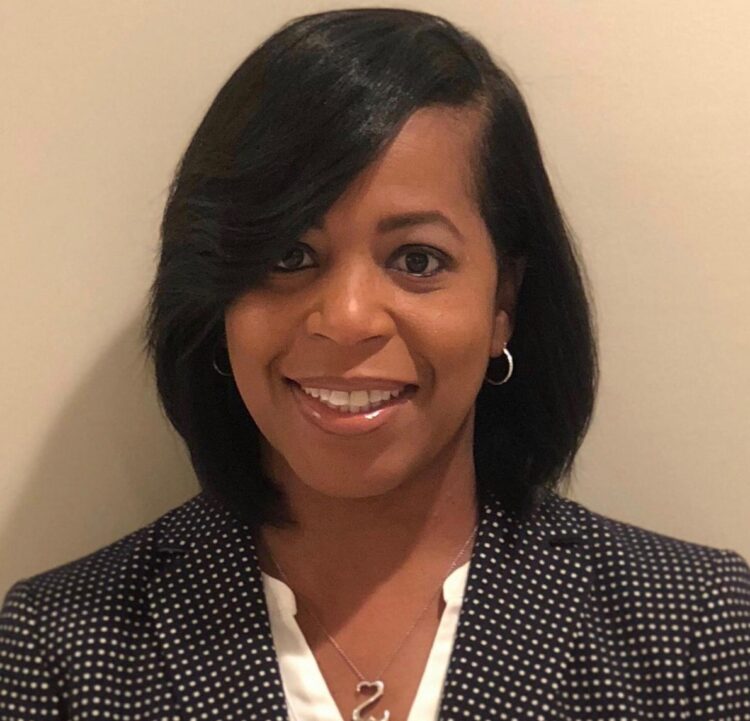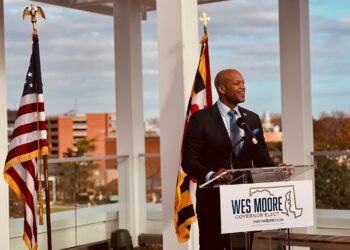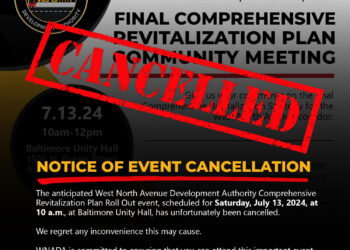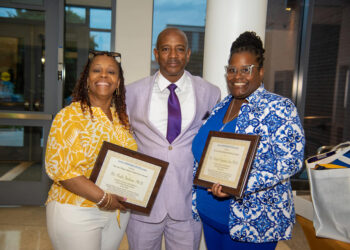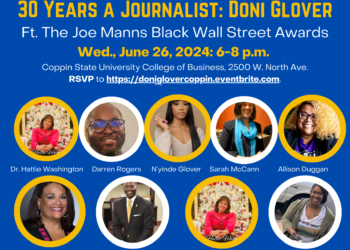By Doni Glover
(BALTIMORE – February 20, 2024) – If you’re African American, from Baltimore, and over 50, you might recognize names like Dr. Aaron Jenkins and Dr. Uthman Ray. They were popular among young African Americans seeking gold or silver crowns, a trend that gained recognition nationally, regardless of whether one had a gold tooth or not.

Apart from these Black dental professionals and occasional outreach efforts by the Baltimore City Health Department, opportunities to address oral health in the Black community are too often missed. For many, the dentist’s office was the last place they wanted to visit. The thought of someone probing and poking around in their mouths wasn’t anyone’s idea of fun, and it was a common stereotype that going to the dentist was unpleasant.
However, this stereotype stymies our growth as a community. For nearly two decades, Tonya Jeffries, a West Baltimore native, has been dedicated to changing perceptions and dispelling negative typecasts about oral health in the Black community. She believes that the Black community is often overlooked in oral health education and is highly committed to shedding light on the importance of dental care. Given that this is Black History Month, it should be noted that she is the first African American president of the Maryland Dental Hygienists Association (2015-2016). This organization was established in 1961.
Given that African Americans comprise some 30% of the state of Maryland, Jeffries, who is nearing the completion of her doctorate, has toiled arduously to educate, advocate, and help empower the community. Presently, Jeffries is working to become the first African American in Maryland to develop a dental hygiene/dental assistant program at a community college.
According to the Anne Arundel County Department of Health’s website:
- Oral cancer is most common among African American men, and it ranks fourth as the most common cancer in African American men.
- The rate of African Americans who develop oral cancer is one-third higher than Caucasians.
- The number of African Americans who die from oral cancer is almost twice as high when compared to Caucasians.
When asked about her mission, Jeffries replied, “To help increase the number of Black dental hygienists and others from underrepresented communities, and to help increase awareness of oral health in the Black community.” And given that 73.9% of dental hygienists are white and only 3.7 % are African American, Jeffries’ efforts to help empower the Black community are so necessary.
Just ask one of Jeffries’ biggest fans, Brionna Burris, Program Director of the Dental Hygiene Program at the Community College of Baltimore County.
“Tonya has been an exceptional mentor and leader,” said Burris. She continued, “I am truly grateful for the guidance and inspiration she has provided me. Her wisdom, unwavering support, and genuine care have not only shaped my professional growth but have also made a lasting imprint on my personal development. I consider myself fortunate to have learned from someone as exceptional as her. She has provided me with invaluable insight as I navigate my future endeavors. I think she has done a tremendous job in the time I’ve known her. She’s made a great effort to establish change in our community by increasing our awareness surrounding oral health. She has served as president of the Maryland Association of Dental Hygienists. In that leadership role, she created and developed certain initiatives to improve access to care in the community. She has also served as an instructor and director of a dental hygiene program and helped produce more hygienists to serve all populations in the community. Further, Tonya Jeffries formulated this one event I will never forget: ‘Deaf and Dental’. This is but one demonstration of the forward-thinking and the unique ability she possesses to target underserved communities. She is very innovative in meeting the needs of underserved communities – a true pioneer in our industry who is always seeking to improve her professional development. And she continuously seeks to be a lifelong learner. She always seeking to improve herself. I admire that in her. She is a person who has the drive and tenacity to finish. She’s very ambitious and puts in a lot of work to exceed her expectations. Sometimes she’s above and beyond. She deserves all of these accolades and recognition. I’m just glad to be able to speak on her behalf.”
While Burris is but one of Jeffries’ mentees, there are many others of various backgrounds, countries, etc. Ultimately, Jeffries wants to see a healthier community featuring a more diversified cadre of oral health professionals, and she wants access to oral health information and education to be more universal.
When asked about the need for increased diversity in the dental hygiene profession, Jeffries stated, “I think it’s important that we emphasize diversity so that it changes things.” She added, “Otherwise, the industry wouldn’t be 70% Caucasian. It would be more diverse.”
Jeffries has often been the lone African American in a room full of mostly white female colleagues. Although it might seem awkward sometimes, Jeffries insists that oral health is far too significant an issue and that the message deserves to be amplified.
“It is significant because it tells us that this is oral health. Everybody knows that health care duplicates in the community … how our workers are … if our commissions and clinicians are not diverse, we’re not effectively speaking to the needs of the community. If our clinicians, physicians, and dentists are not Black, it’s less likely that Black people will get the attention they need and deserve. It’s well-known that people feel more comfortable seeking health care, or in this case, oral care from people who represent them or look like them. When you don’t have people available who look like the community, those people’s chances of seeing a professional is less likely. They’re not treated, and they’re not educated on how to proceed. Effective education on oral health helps to preserve, educate, and empower the community. It is talking to a diverse representation of the world. Oral health is important because it is connected to overall health, and also connected to systemic health. Our mouths are not disconnected from our bodies. Often we can detect and diagnose things that could be happening in our bodies by looking in our mouths. It is often the dental hygienist who spends the most time with our patients in their mouths during a patient visit and can point out things like oral cancer, lesions, or other disease.”
When asked if she is glad she entered this field, she said, “Absolutely! I’m glad I got into this field. I didn’t realize I would contribute so much to this industry. I’m so glad I made it this far. I never thought I’d be a program director. I never thought I’d build a program for an institution. And I never thought I’d be involved in legislation or supportive of a bill. I have a bill in my and my colleague’s name that expanded the scope of practice for dental hygienists in Maryland, and I’ve created CE (continuing education) courses that I present across the country.”
One person Jeffries encountered during her legislative efforts in Annapolis was former state Senator Joan Carter Conway, who vividly recalled the matter that came before her Education, Health, and Environment Matters Committee in the Maryland General Assembly. The issue was dentists wanted dental hygienists to do the work and not get paid accordingly.
Sen. Conway said, “Yes, I remember that vividly. There was a big riff between the dentists and the dental hygienists, and the dentists weren’t treating the dental hygienists with the respect and the equal pay that they deserved.”
She added, “As long as dental hygienists were doing the work for free … then all of a sudden I didn’t have the credentials to perform those duties. Now, it’s a problem because I want you to pay me. There was no problem before.
The ever-popular Carter-Conway also acknowledged a rarely-discussed issue in the Black community as it relates to oral health: the issue of medical insurance vs. dental insurance.
The Black community needs many more dedicated Black advocates like Jeffries who have led in spaces where there was zero Black representation.
Jeffries continued, “I just want to be able to encourage greater diversity so we can better serve society as a whole. Regarding African Americans and oral health, there needs to be more promotion, recruitment, mentorship, academic support, and diversity across the board. After all, information is power.”



